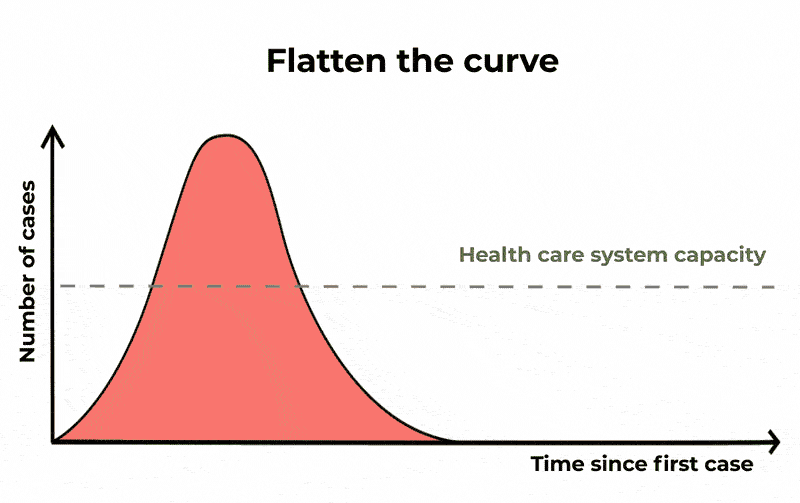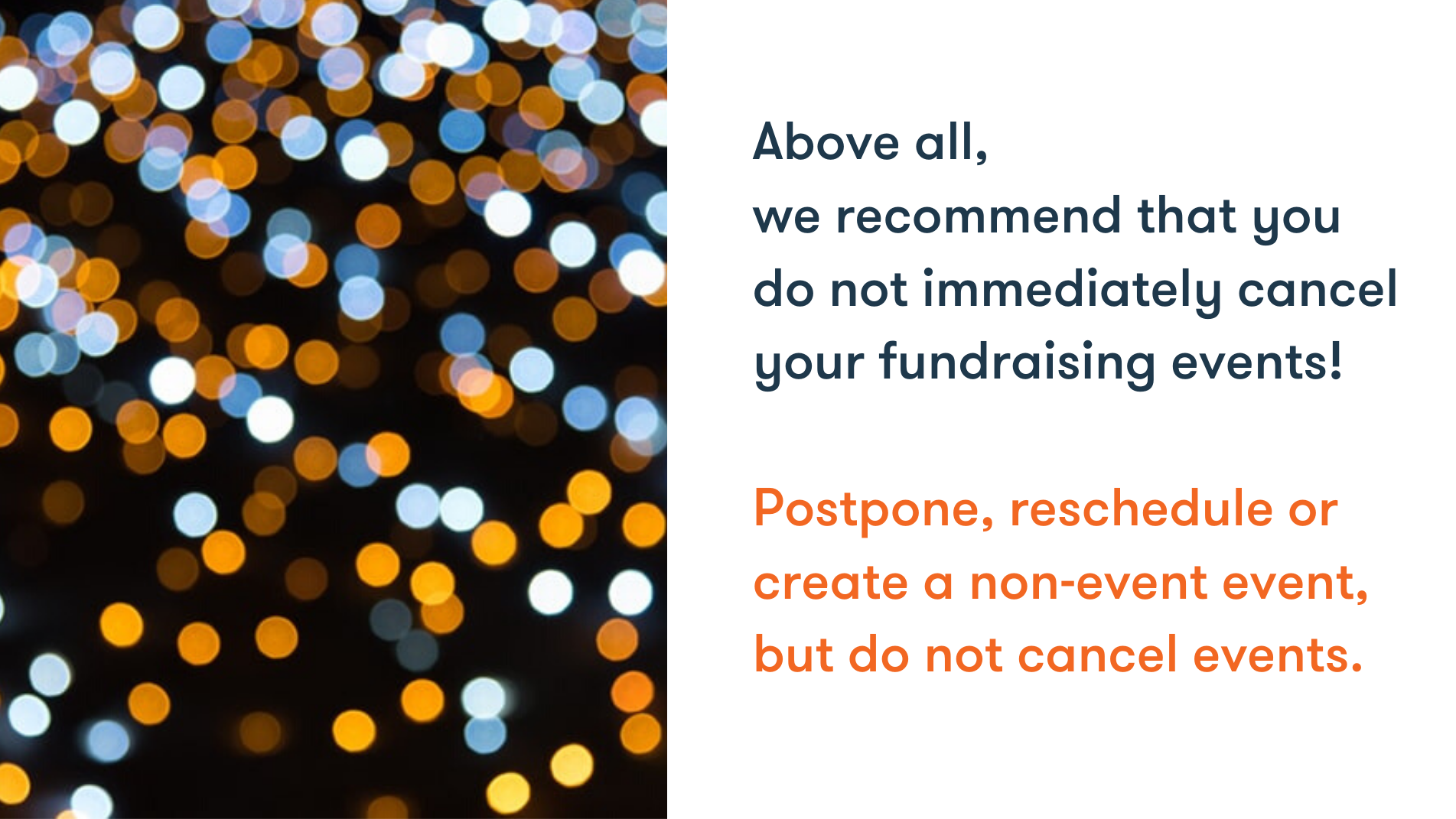FUNDRAISING IN THE TIME OF COVID-19...WHAT TO DO NOW!
FUNDRAISING IN THE TIME OF COVID-19
WHAT TO DO NOW!
The ViTreo Team
March 17th, 2020
Credit: ScienceAlert
We are in the midst of an unprecedented event that has and will affect all of us in many ways. We are concerned about you, and the personal safety and security of your staff, clients, volunteers, patrons and ourselves. Over the past week, the impacts of COVID-19 have been dramatic and direct. It is clear that the global economy will undergo significant volatility for some time.
Nonprofit organizations are uniquely vulnerable. Most operate with tight margins and are dependent on fundraising and the generosity and support of donors. Not all have reserves or a strong balance sheet to fall back on. The sector needs to quickly implement strategies to support our donors and stabilize fundraising revenue. ViTreo is and will continue to assess the situation. We are curating information, ideas, and input from many sources. This is an ongoing process and there is so much out there. We will publish the very best of these over our various communications and social media feeds.
Right now, today, we are focusing on what to do in the immediate short term. What can you do now to stabilize your organization, protect your mission delivery, support your donors, and steady your fundraising? In future posts we will talk about medium and longer term strategies… but for now.. here is our advice as of March 17 2020.
NOTE: This is a rapidly changing situation. New developments may yield entirely new advice applicable to your specific circumstance or for all fundraising situations. Your situation may be unique and not applicable to this general advice. Our advice is meant as a general guide. We hope you find it helpful.
OVERARCHING PRINCIPLES TO KEEP TOP OF MIND:
Your donors, volunteers and staff are all experiencing a time of uncertainty
They are likely at home and generally available more than usual
You can expect more reliance on or connection to social media
They may be ready and waiting to help; depending on the appeal and being careful to not be insensitive to their situation, we owe it to our organizations and our mission to ask our staff, our volunteers, and our donors for help
They are also interested in the COVID-19 issue and its outcomes…and they are your donors so they are interested in how your services, staff and clients are being affected; this could be an opportunity, if presented at the right time and in the right way
Always follow the direction of your local health authority, government and your organization’s guidance to keep your clients safe. Safety and security of all involved is the #1 priority.
ADVICE TO HELP SUPPORT YOUR NONPROFIT
IN THE SHORT TERM
Above all, we recommend that you do not immediately cancel your fundraising events! Postpone or reschedule events, do not cancel events. If you outright cancel events, you lose the opportunity for this year and you may lose the donor or sponsor to another organization. Try to maintain some continuity by rescheduling the event. The outright cancellation of an event is an early reaction that will have long term impacts. It is the equivalent of closing a store for a year for your constituents.
We recommend that you activate and significantly increase your social media now!
Tell your story by focusing on the people involved or affected; this situation is about the people more than the virus
Relationships are always at the forefront; emphasize the importance you place on your clients, donors, volunteers, staff and express genuine concern about the impact COVID-19 may be having on them and their families
Focus on front-line impacts (e.g. the workers helping your clients), give shout outs, or kudos to your team who are there for those you serve
Tag some donors or sponsors who have been amazing in recent years and acknowledge how their gifts are helping you now in this time (and at other times) — share the story of the difference it made
Highlight pressing or emerging needs as they develop
Develop the story line about how responsive your organization continues to be and any impacts this is having; examples might include:
Seniors not being able to have visitors, adding to staff loads
Animals not being adopted as readily, requiring more foster care
Volunteers not able to physically help
More calls to emergency or distress lines due to mental health concerns
Engage with donors and donor organizations on social media; join the conversation
Be sure to respond to comments and online messages; keep the conversation active and interesting.
We recommend that you don’t change your fundraising program but consider amending your approach.
Your needs haven’t changed, and they have possibly increased; urgency is when fundraising is most important
Keep your current plans in place but assess the impact of forced event cancellations or the new economic environment with the assessment matrix (see below).
Review the situation constantly, this will help you keep connected to your constituents; if constituents ask, tell them the impact, as they need to know.
Again, please resist the urge to cancel all fundraising! Consider alternatives, including: repurposing, repositioning (like a non-event event) or rescheduling (but not cancelling) events
Reissue direct mail or e-appeals with updated messaging
Reassess your social media tenor, approach, content, and frequency
Re-evaluate and, if necessary, re-position your fundraising priorities
Keep the donors and clients your organization serves at the forefront of all decisions, strategies, and communications; continue to speak to your donors and prospective donors about your clients; as part of that conversation, do not say “I expect that with the COVID-19 you are reconsidering your giving”; if that is said in any piece, it will likely result in a significantly lower response.
We recommend that you create a donor-centered email with some of your near-term organizational plans and needs. Doing this soon will show you are prepared for emergencies and that you have plans. Donors are often impressed with the reality of a strong response.
During your communications, take the time to prepare and review your communications: it is easy to accidentally mismanage communications in a time of rapid change and uncertainty
Communicate about how your donors have helped you, and what you are doing to help your clients in this time
Identify areas where people can help (e.g. directed donations or specific in-kind)
Where possible, tell tangible stories (with real people) about the impact of this crisis on your programs and clients in your calls for support; many times, your organization and the people who rely on you are affected in ways that aren’t obvious to a donor
Remember, this is not about you! It is about how a donor can help even one of your clients and the people and the community your organization serves
Ramp up stewardship. You can use technology to prepare a video for your supporters about what you are doing.
We and our donors have so much available technology in our pocket to deliver some amazing and touching connections.
Where possible personalize the message. A video for a member or donor who has been a big supporter in the past may be welcomed.
Ask volunteers to help, as they may be ready to do something from home, since they may not be able to go to their regular volunteer shift.
These are extraordinary times and what we are doing is not easy. At ViTreo, we are here to help and we will continue to offer support and advice. We hope that we all emerge from this very difficult time with more resilience and with an even greater focus on our message and what we are doing to make our communities better.
We are here to help. Call on us if you would like help with your fundraising programs and strategy as we all journey through this difficult time together.
Leaders in our sector have pulled together and developed some amazing resources. You can find links to these resources on our website at this link: Fundraising in the time of COVID-19: Advice from leaders in the sector.





